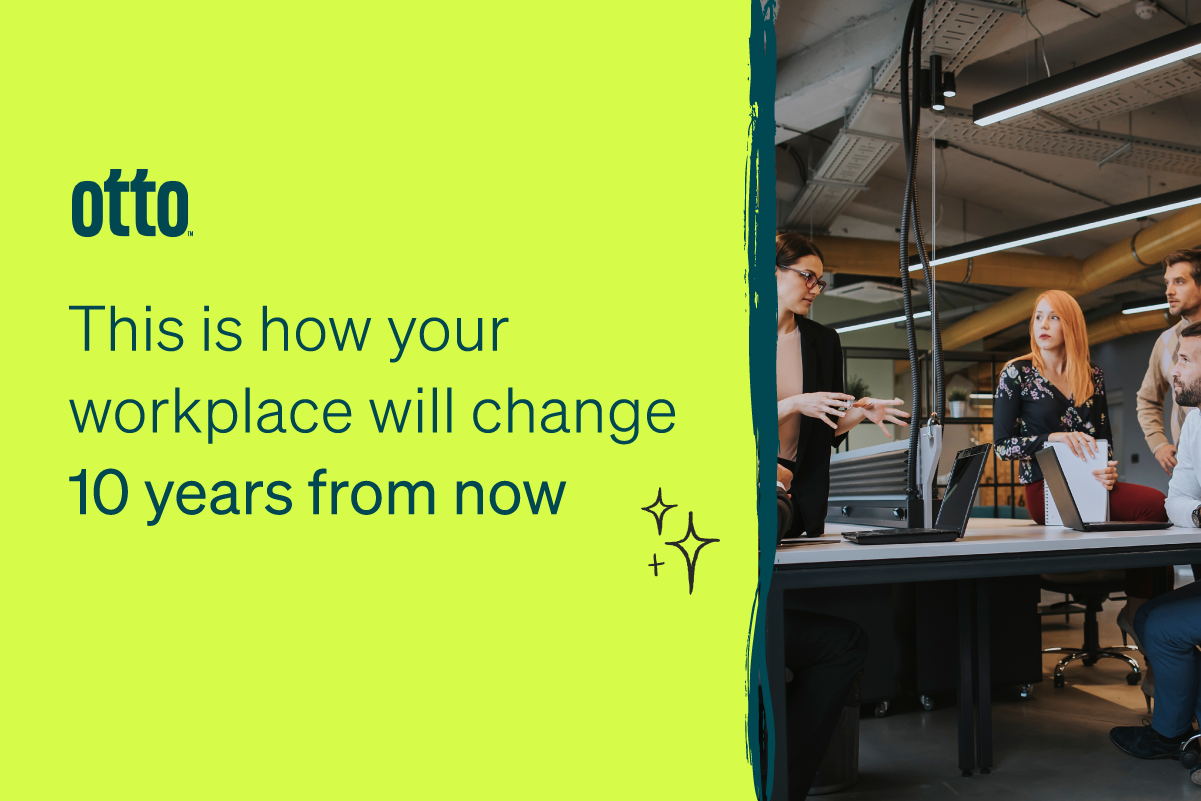With so much uncertainty in our lives from the previous 3 years, we can’t blame you for setting up a gofundme campaign for a crystal ball. But there is something you can use to plan for changes to the workplace that’s much more useful – our forecasts!
#1 – Upskilling and passion to learn will overtake experience
For a while now the emphasis has been on creating a lean organisational culture of learning and innovation – and over the next decade, this is likely to become fundamental. Experience and degrees will never stop being important, but what organisations need is people who are hungry to keep learning. The ability for HR to recruit hires who are curious and engaged as well as form programs that foster continuous learning to upskill your people internally will be paramount.
#2 – Transformation of middle management
Right now, middle management is in a state of flux. Traditional management techniques and priorities simply don’t work in the digitisation age. Responsibilities have changed and so has the way forward-thinking organisations are measuring performance. This is largely due to the dramatic shift to hybrid work and the capabilities of supporting technology, which was pushed into hyperdrive during the pandemic.
To manage remote teams, upskill employees, and build cohesion and collaboration within their teams takes a whole new approach and skillset to traditional team management. Middle managers are still critical – but the emphasis will be on developing leaders that are great coaches, communicators, and teachers with strong EQ and tech skills.
#3 – Data collection and usage will soar
We’re already seeing a surge in big data usage, especially with AI and automation technologies becoming mainstream. Over the next decade, these and other data-driven technologies will become both more sophisticated and more commonplace.
These systems are set to assist managers and employees in tracking performance metrics as well as well-being and employee experience. Used ethically, they are set to even monitor biorhythms and wellness metrics, helping each employee become more efficient, healthier, and live a balanced life by accommodating all types of work styles.
#4 – AI becomes your teammate
We’ve said it before but it’s worth saying again – AI and smart automation will create and change jobs far more than they will replace. Essentially, these tools are designed to do routine work in a smart way and tirelessly, which makes them your favourite colleague! And consumers trust AI too. You can already carry your personal workspace with you with cloud communities and AI applications, but this will become the norm.
These technologies are set to take over all kinds of smart workflow tasks to drive a lean organisation, from collecting data and creating insightful business intelligence reports to onboarding clients, making workflows more efficient, controlling cybersecurity, simplifying product and workflow development through digital twins, monitoring warehouse and manufacturing processes, and more.
#5 – The value of work will be paramount
By offloading administrative and repetitive tasks onto AI and automation technologies, the human element of work will become a priority. We will have to do all the things that computers can’t – think creatively and innovatively, perform high-level problem-solving, continually improve processes and reduce wastage.
This will apply to every employee at every level, essentially creating more value in the work that employees do. From machine technicians and frontline staff to HR, accounting, and marketing, everyone will be involved in making your organisation better, more forward-thinking, and more agile. Teams will revolve around the ability to bring everyone into higher-level and visionary thinking, tapping into a passion for contributing ideas and work that drives meaningful impact.
#5 – New approaches will be needed to develop and maintain workplace culture
One of the biggest challenges of the future will be creating cohesion among teams and individuals. When organisations are a mix of remote and hybrid staff that are geographically distant, how do we create and empower a strong culture? How do organisations inspire loyalty and push performance? How can we keep employees engaged and active? This is going to be a challenge not only for HR and managers but individual employees themselves.
Right now, it is up to organisations to think ahead using these forecasts to develop strategies that keep people connected and communicating so that work-life balance is accommodating in terms of the distribution of work, different life stages, time, and work styles of employees. A more individual approach is ironically key to optimising each employee’s engagement and performance, but this does need to be balanced with the need to build connections between distant team members, support collaboration, and build a relationship with the organisation as a whole.
Building a human future for the workplace through technology
Since our inception, Otto has been about humanising technology – recognising that to deliver real ROI, the right tech needs to have a very human element. From digitisation, cloud migration and tech investment strategies to IT support and business intelligence systems, our solutions are designed to support staff at every level of the organisation.
We believe tech is there to make work easier, more effective, and more agile – not to replace people or to give you an endless headache.
With people at the heart of every tech solution we develop, we’re here to help small and medium-sized businesses in every sector move into the future of work.


